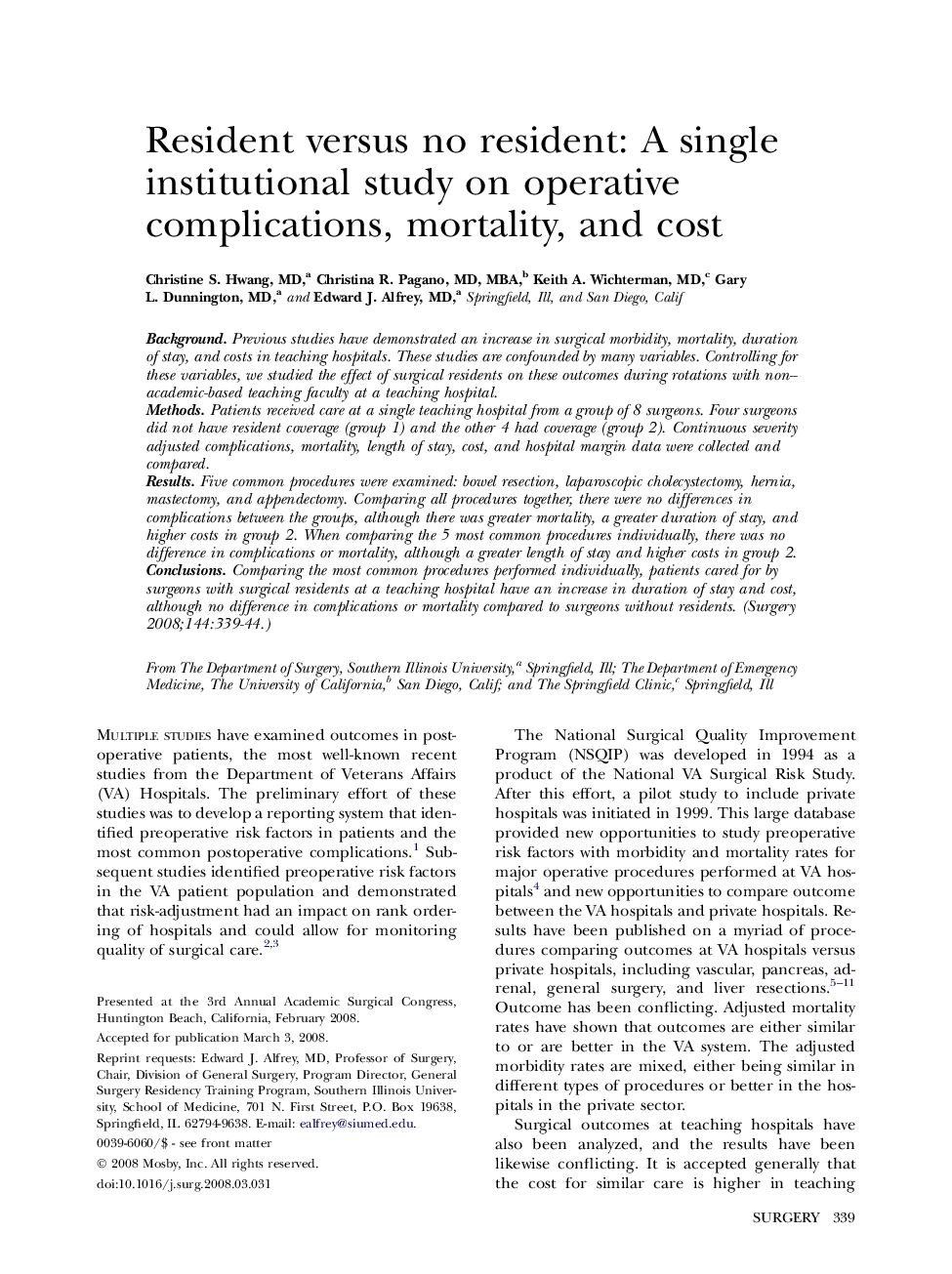| Article ID | Journal | Published Year | Pages | File Type |
|---|---|---|---|---|
| 4309472 | Surgery | 2008 | 6 Pages |
BackgroundPrevious studies have demonstrated an increase in surgical morbidity, mortality, duration of stay, and costs in teaching hospitals. These studies are confounded by many variables. Controlling for these variables, we studied the effect of surgical residents on these outcomes during rotations with non–academic-based teaching faculty at a teaching hospital.MethodsPatients received care at a single teaching hospital from a group of 8 surgeons. Four surgeons did not have resident coverage (group 1) and the other 4 had coverage (group 2). Continuous severity adjusted complications, mortality, length of stay, cost, and hospital margin data were collected and compared.ResultsFive common procedures were examined: bowel resection, laparoscopic cholecystectomy, hernia, mastectomy, and appendectomy. Comparing all procedures together, there were no differences in complications between the groups, although there was greater mortality, a greater duration of stay, and higher costs in group 2. When comparing the 5 most common procedures individually, there was no difference in complications or mortality, although a greater length of stay and higher costs in group 2.ConclusionsComparing the most common procedures performed individually, patients cared for by surgeons with surgical residents at a teaching hospital have an increase in duration of stay and cost, although no difference in complications or mortality compared to surgeons without residents.
